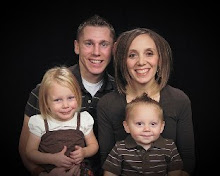In Block 4, I had my psychiatry rotation, which was with Dr. Karp, DO, at Rosewood Ranch in Wickenburg, AZ. Rosewood Ranch is an inpatient based center for eating disorders. They see patients from across the nation for anorexia nervosa, bulimia nervosa, binge eating disorder, and mixed disorders. They also have both male and female patients. The structure of the program was very interesting to me. The rehab features both a very custom nutrition program along with group and individual cognitive based therapies. The idea is that when someone is so nutritionally imbalanced, they are cognitively affected as well. There is also three levels to the rehab. The first is the inpatient facility, after which they can transition to a residential setting, where they converted a motel to apartments for the residents. There, they have more freedoms and choices, but still have the program structure and support they need. A typical treatment period is variable from patient to patient, but was usually 30 days inpatient, with an additional 30 days in the residential. Many also choose to do an outpatient program, where the patients work or go to school, then have evening classes and programs as they continue to transition back into life. Another neat aspect they have is called Family Week, where the patient’s family comes to Wickenburg and has day classes with the patients. With eating disorders, it doesn’t just affect the patient, but the entire family. They learn in detail the psychological and medical aspects of eating disorders, and have a lot of family based healing therapy. Many times, the eating disorder will tear the family to shreds.
I learned so much on this rotation! This was recommended to me by an upper classman as a great way to immerse yourself in patient interaction and delving deep into the patients’ psyche. The first few days I mainly sat in on the group therapy sessions so I could gain a good grasp of the concept of the program. Then I sat in on new patient interviews and the daily and weekly interviews with Dr. Carp. The next week I spent going back and forth between the inpatient and residential facilities. The third week I spent at family week, where I was able to witness both the damage that an eating disorder can cause, as well as the healing that can take place with therapy, commitment, and work. The final week I spent conducting the new patient evaluations, along with daily and weekly interviews. I even was able to dictate my initial evals! It was a really great experience for me, and I grew a lot as both a person and future physician.
The whole time I tried to put myself in another’s shoes. Whether it be the patient, thinking about how easy a mental disorder can take control of my life, and the tailspin of detriment that can result, or the perspective of a brother, father, or significant other, who is watching this happen to my loved one. There were many times at Family Week that I cried as I witnessed the hurt and anguish that has come from this underestimated disease.
On the positive side, I bonded with many of the patients, trying to connect with them and showing them that I really cared. It was really rewarding to me to see the progression of some of these patients, and it is awesome that I am still in contact with many of them today.
While this may not have been the most academically challenging rotation, and true, I didn’t see a ton of pathology like I may have in an acute psych ward. But I gained so much more than that. I got so deep into the minds of those around me, and this was emotionally challenging for me. I feel that it prepared me to be able to handle other mental disorders as well, as I worked in acute, and chronic settings, and also worked with the family aspect. This helped me to see how I can apply this to the Army physician setting in working with PTSD or other acute stress disorders. One thing is for certain—I will always be grateful for the lessons I learned from Dr. Karp, but even more importantly, the wonderful, courageous patients at Rosewood Ranch!
Oh, this rotation was actually my first NBME Shelf exam, which are nationally standardized tests for all the core medical rotations. You basically get 2 hours and 10 minutes to answer 100 clinical vignette based questions. It really is not enough time to get through everything, especially as I am a slower test taker. I felt the Psych exam was fairly straightforward, but it asked a lot of questions about the type of therapy that would be best in different cases that I wasn’t prepared for, especially since it is so subjective and different psychiatrists use different methods. I also did get to the last 8 or so questions, so I had to bubble in “C” for the last handful. Luckily, I still did okay despite that fact!


2 comments:
Thanks for writing about your most recent rotation! I'm glad you can transfer your learning to help people deal with PTSD, God knows we need physicans who are knowledgable about the disorder! Latest report I heard is that they are estimating that at least 360,000 soldiers returning from Iraq and Afghanistan will have PTSD...
Oh, PTSD is such an epidemic amongst our soldiers. The military branches have all been working hard in helping with adjustments for the soldier and the family and helping them transition back into civilian life. I also think that many are entering their deployments unprepared for what they will encounter. Interestingly, soldiers in the special forces such as Rangers and Navy SEALS have lower reports of PTSD, as they are more prepared for what to expect. It is the Reservists and National Guard who are being hit hard with PTSD!
Post a Comment